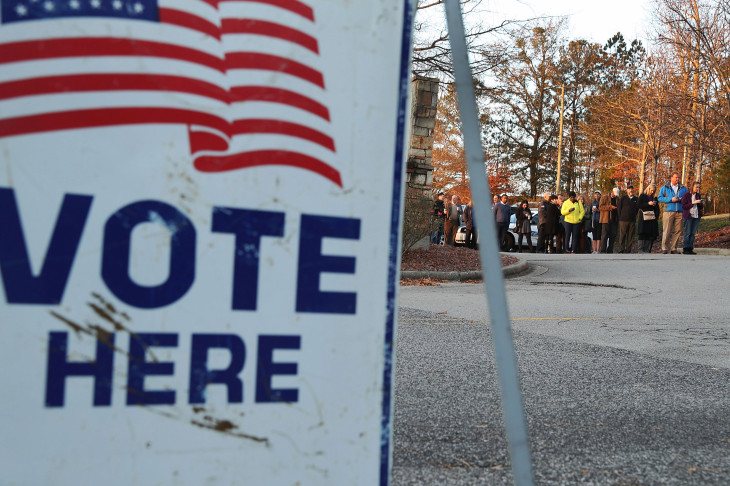The Eleventh Circuit Court of Appeals has ruled that private plaintiffs may continue to bring suits against states under the Voting Rights Act. With its opinion, the Eleventh Circuit joins the Fifth and Sixth Circuits in holding that individuals and organizations can sue states in federal court when they racially discriminate against voters. No Circuit has ruled to the contrary. Today’s ruling affirms a decision from the Middle District of Alabama, which also held that the doctrine of sovereign immunity – which often prevents states from being sued by private parties in federal court – does not apply to the VRA because the intent of the law is to prohibit state-sponsored discrimination.
The Eleventh Circuit held that “[b]y design, the VRA was intended to intrude on state sovereignty to eradicate state-sponsored racial discrimination in voting . . . Nor is [the VRA] any great indignity to the State. Indeed, ‘it is a small thing and not a great intrusion into state autonomy to require the states to live up to their obligation to avoid discriminatory practices in the election process.’” The opinion was authored by Judge Charles Wilson and joined by Judge Roger Vinson, sitting by designation. Judge Elizabeth Branch dissented.
“This decision affirms the critical role that individual citizens and organizations play in the fight for equal rights at the ballot box,” said Kristen Clarke, President and Executive Director of the Lawyers’ Committee for Civil Rights Under Law. “We cannot rely upon the federal government and the federal government alone to enforce one of our most sacred civil rights laws. To date, the current administration has not filed a single lawsuit to enforce the Voting Rights Act. With this opinion, the Lawyers’ Committee for Civil Rights Under Law will continue to use the courts to safeguard voting rights.”
The underlying case, Alabama NAACP v. State of Alabama, challenges Alabama’s statewide method of electing its most powerful judges. The plaintiffs argued that that method unlawfully dilutes black votes in violation of the VRA. All 19 judges on the Alabama Supreme Court, the Court of Criminal Appeals, and the Court of Civil Appeals are white. The suit seeks to bring these courts into the 21st Century by adopting a method where black voters are represented in the appellate judiciary. The case went to trial in November 2018. A decision on the merits is pending in the Middle District of Alabama.
“With this decision, black Alabamians are one step closer to desegregating the state’s judiciary,” said Brendan Downes, Counsel in the Voting Rights Project at the Lawyers’ Committee for Civil Rights Under Law. “The state courts at issue in this case exclusively reflect the preferences of white voters. That profound injustice must be remedied.”
The plaintiffs in the case are represented by the Lawyers’ Committee for Civil Rights Under Law, Crowell and Moring LLP, and Alabama attorneys Jim Blacksher, Ed Still, and Mitch McGuire.


